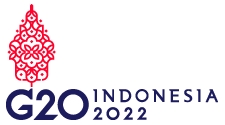The third G20 Sherpa meeting in Yogyakarta has concluded with G20 member countries agreeing to seek solutions to myriad global problems.

“During this meeting, we can see the collective commitment of G20 countries to remain united by offering solutions to global problems that occur recently,” Co-Sherpa Edi Prio Pambudi noted through a statement, Thursday (Sept 29).
Problems, such as the energy crisis, food scarcity, rising food prices, inflation, and continuity of COVID-19 recovery, are issues that are not only encountered by G20 countries but also developing and vulnerable countries.
Discussion on Leaders’ Declaration began from materials that are relatively easy to accept by all countries followed by a bilateral meeting with several key countries, so that an agreement can be achieved.
A technical discussion on Leaders’ Declaration will be conducted in October 2022 before it is finalized during the fourth Sherpa meeting in Bali in November 2022, near the execution of the G20 Summit held in the same month and place.
The declaration draft that contains three priority issues during Indonesia’s G20 Presidency comprises global health architecture, digital-based economic transformation, and energy transition as well as food security.
This draft comes from 39 parties, comprising G20 member countries, nine invited countries, and 10 invited international organizations, that will attend the G20 Summit Conference in Bali, November.
The meeting also endorsed concrete deliverables, such as programs or initiatives. This aligns with President Joko Widodo’s mandate that Indonesia’s G20 Presidency should produce real benefits for Indonesians.
“It is true that the concrete results will have their follow-up programmed,” secretary of the Coordinating Ministry for Economic Affairs Susiwijono, said at an online press conference, which was followed from here on Tuesday (Sept 27).
The programs arising out of this year’s G20 Summit will be reviewed together at next year’s meeting.
“There is an annual forum so that we can review several agreements that have been conducted together,” he said.
This year, in the midst of various global crises, Indonesia was able to contribute fairly, leading many to praise it, he added.
The G20 Sherpa Track discusses global challenges and various economic (non-financial) issues to find solutions and provide recommendations on the G20 agenda and priority issues, such as energy, development, tourism, digital economy, education, labor, agriculture, trade, investment, industry, health, anti-corruption, environment and climate change.
The role of Sherpa Track is very vital, especially in coordinating all Working Groups and Engagement Groups under its coordination.
Indonesia’s G20 presidency in 2022 provides an opportunity for Indonesia to lead developed and developing countries in discussing various issues and the process of global economic recovery.
Underscoring Indonesia’s important role as president of this year’s G20, Foreign Minister Retno Marsudi said that the world was pinning hopes on G20 being a catalyst of global economic recovery, especially for developing countries.
“The G20 must not fail to be a catalyst for world recovery. We cannot let global recovery fall at the mercy of geopolitics,” she stated, while delivering a speech at the general debate of the 77th United Nations General Assembly on Tuesday (Sept 27).
She proposed the paradigm of collaboration to surmount numerous global challenges.
“A paradigm of win-win, not of zero-sum. A paradigm of engagement, not of containment. A paradigm of collaboration, not of competition. This is the transformative solution that we need,” Marsudi noted.
According to Marsudi, such a collaboration paradigm is deemed necessary to facing the current concerning world conditions wherein the pandemic persists and the global economy remains sluggish, war among nations, and violation of international law that has become a norm in pursuit of narrow self-interests.
Written by: Sanya Dinda S, Fadhli Ruhman, Editor: Fardah Assegaf (c) ANTARA 2022
